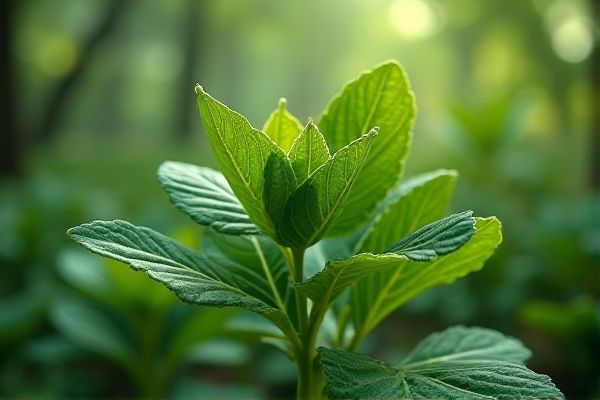
Bangladesh offers diverse job opportunities in botany, especially in research institutions, universities, and environmental organizations. Researchers can find positions focusing on plant conservation, agricultural science, and biotechnology, contributing to sustainable development initiatives. Government agencies often seek botanists for biodiversity studies and ecological assessments, emphasizing the country's rich flora. Private sector roles in agrochemical companies and nurseries also require expertise in plant cultivation and genetic research, making it a vibrant field for aspiring professionals.
Job Description
Botany-related jobs in Bangladesh often revolve around research, conservation, and education in plant biology. Positions may include roles in agricultural research institutions, universities, and NGOs focused on environmental sustainability. Scientists, plant pathologists, and horticulturists work to enhance crop yields, improve disease resistance, and conserve native plant species vital for the ecosystem. Opportunities for fieldwork, laboratory research, and community outreach make these positions diverse and impactful, contributing to the country's agricultural development and biodiversity preservation.
Requirement
Botany-related jobs in Bangladesh typically require a degree in botany, plant science, or a related field. Practical experience through internships or fieldwork can enhance your employability in research institutions, universities, or environmental organizations. Proficiency in laboratory techniques and strong analytical skills are often essential to conduct experiments and analyze plant data effectively. Knowledge of local flora and sustainability practices contributes to roles focused on conservation and ecosystem management.
Salary and Perks Expected
Botany-related jobs in Bangladesh offer a range of salaries, typically varying between BDT 25,000 to BDT 80,000 per month, depending on experience and specialization. Research institutes, government agencies, and NGOs often provide opportunities for fieldwork and laboratory research, leading to varied job roles in conservation, agriculture, and environmental management. In addition to salary, many positions come with perks such as health insurance, opportunities for travel, and funding for further education or research projects. Fostering a strong network and staying updated with industry trends enhances your job prospects in this growing field.
Similar Job Names
- Plant Ecologist
- Botanist
- Horticulturist
- Agronomist
- Plant Taxonomist
- Conservation Biologist
- Plant Pathologist
- Research Scientist
- Crop Scientist
- Ethnobotanist
- Biotechnology Specialist
- Herbarium Curator
- Environmental Consultant
- Seed Technologist
- Forestry Technician
- Landscape Architect
- Plant Breeder
- Agricultural Extension Officer
- Soil Scientist
- Phytochemist
Job Expectation Concept
Job expectations in botany-related fields in Bangladesh involve a blend of research, conservation, and agricultural development. Professionals in this sector often engage in studying plant species, improving crop yields, and addressing environmental challenges. Opportunities exist in government research institutions, NGOs, and academic universities, where you can contribute to biodiversity conservation and sustainable agriculture. Staying updated with local agricultural practices and environmental policies will enhance your effectiveness and relevance in this growing field.
Career Advantage and Weakness
Botany-related jobs in Bangladesh offer distinct advantages, such as growing opportunities in research and conservation due to the country's rich biodiversity. The demand for skilled professionals in agriculture, forestry, and environmental management is increasing, particularly as sustainability becomes a national priority. However, challenges exist, including limited funding for research and development, which can hinder career growth and job security in this sector. You may also encounter competition for positions, highlighting the importance of specialized skills and continuous education to stand out in the field.
Important Thing Must Know
In Bangladesh, botany-related jobs offer diverse opportunities in research, environmental conservation, and agriculture. Various institutions, including universities and governmental organizations, seek professionals with expertise in plant science to address local ecological challenges and promote sustainable practices. Your background in botany can lead to roles such as research scientists, agricultural extension workers, and environmental consultants. The demand for skilled botanists is increasing, driven by the need for sustainable farming techniques and biodiversity conservation. Networking with industry professionals and participating in local workshops can enhance your prospects in this growing field.
Alternative Career Options
Botany-related jobs in Bangladesh offer diverse career paths beyond traditional roles in research and education. Opportunities exist in agricultural development, where you can focus on sustainable farming practices and crop improvement initiatives. Environmental conservation organizations often seek experts in plant science to address challenges such as habitat destruction and climate change impacts. Additionally, you may explore roles in pharmaceuticals, utilizing plant-derived compounds for medicinal purposes, contributing to both health advancements and economic growth in the country.
Companies List
- Bangladesh Agricultural Research Institute (BARI)
- Bangladesh Forest Research Institute (BFRI)
- University of Dhaka - Department of Botany
- North South University - Environmental Science Department
- Bangladesh National Herbarium
- Khulna University - Botany Department
- Bangladesh Agricultural University - Faculty of Agriculture
- Dhaka South City Corporation - Urban Greening Unit
- BRAC University - Institute of Governance Studies
- International Centre for Climate Change and Development (ICCCAD)
List of Ideal City
Dhaka, the capital city of Bangladesh, offers numerous opportunities in botany-related jobs due to its vibrant research institutions and universities. Chittagong, with its diverse ecosystems and proximity to coastal flora, presents roles in conservation and environmental management. Sylhet, known for its lush tea gardens and rich biodiversity, attracts roles in plant research and agro-biodiversity. Rajshahi, with its focus on agriculture, provides potential in agricultural research and sustainable practices.
 jobs-bangladesh.com
jobs-bangladesh.com